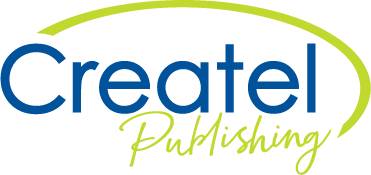Can Detachment Be the Key to Better Learning?
In today’s highly divided culture, it’s common to form strong emotional attachments to the issues or topics we believe in. While these passionate attachments may fuel our commitment and drive, they can also cloud our judgment, reinforcing our biases and making us more vulnerable to misinformation and less open to differing perspectives. This experience is not limited to hot-button topics; it can also influence the learning process, particularly when we hold onto the information we know.
But what if, instead of holding on tightly to what we know, we embrace the idea that knowing nothing might be the first step toward real learning? Some might argue we need to be attached to information to help inform future decisions, but at what point do we strike a balance between certainty and innovation? To truly explore these questions, we should turn to the practice of detachment.
Many of the greatest thinkers throughout history were greatly familiar with this concept. The famous philosopher Socrates said, “I know that I am intelligent, because I know that I know nothing.” Even Albert Einstein echoed this sentiment saying, “The more I learn, the more I realize how much I don’t know.” While our current education system praises students with the most knowledge, albeit a very specific knowledge based on standardised testing and general assessments like NAPLAN, these great thinkers argue that the beginning of true knowledge requires a detachment from information and an awareness of what we don’t know.
Teaching our students to be detached within the learning process can help them build valuable dispositions for learning, fostering an openness to discovery, creative problem-solving, and critical and innovative thinking. So, what does this look like in the classroom?
Building the Habit of Detachment in the Classroom
There are several ways we can build the good habit of detachment in the classroom:
We can encourage child-led inquiry-based projects. This approach helps students become the leaders of their own learning. As they set goals, explore topics of personal interest, and take responsibility for their learning, they develop a strong sense of ownership over their education. This promotes autonomy and encourages them to remain open to new perspectives.
Pose questions for critical thinking. Ask open-ended questions focusing on “how,” “what if,” “why,” and “compare” to promote deeper thinking and encourage dialogue. These questions can also challenge students to question their assumptions and evaluate their sources of information.
Incorporate debates into your classes. Encourage healthy debates, even prompting students to argue the opposite side of what they believe. This practice can help students see issues from different viewpoints and critically assess the information they already know.
Encourage critical reflection. Include reflection questions that prompt students to take their learning beyond the classroom. This practice can turn students into lifelong learners. Furthermore, incorporating questions that are relatable and have real-world applications can make their learning more concrete and deepen their understanding.
Embracing Uncertainty Through Detachment
In the end, detachment isn’t about abandoning our beliefs or the knowledge we’ve gained, but rather about approaching learning and life with a sense of humility and openness. It’s about embracing uncertainty, recognising the limits of our understanding, and being willing to let go of what we think we know in order to explore new possibilities.
As educators our role is to prepare our students for the unknown. By fostering a healthy detachment in the classroom, we give students the tools they need to navigate an ever-changing world with curiosity, empathy, and resilience. In a world that is constantly evolving, perhaps the most valuable lesson we can give is the ability to let go and keep learning.
This article is part of the Building Character and Resilience Program. To request more information fill out our form!



Leave a Reply